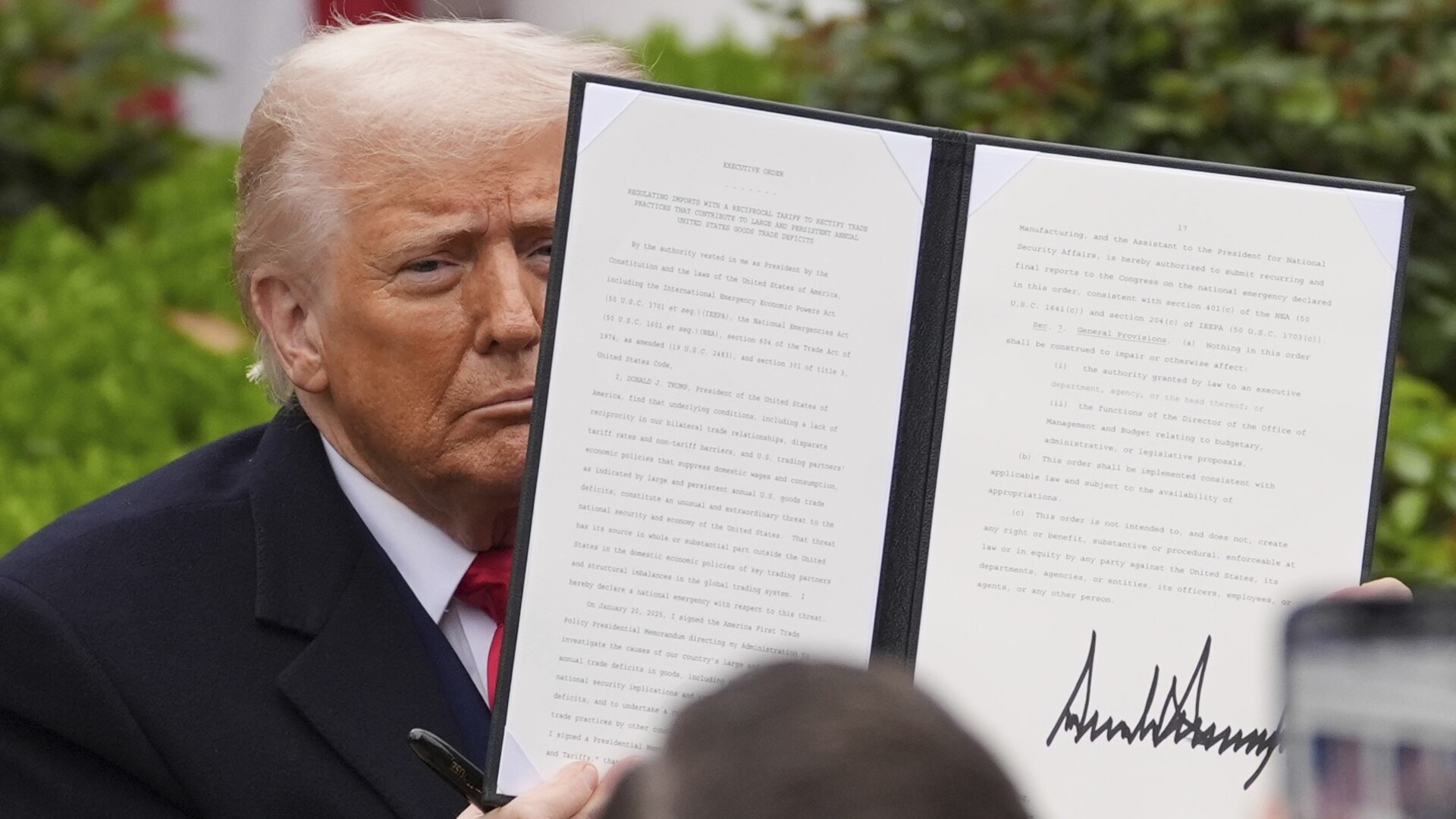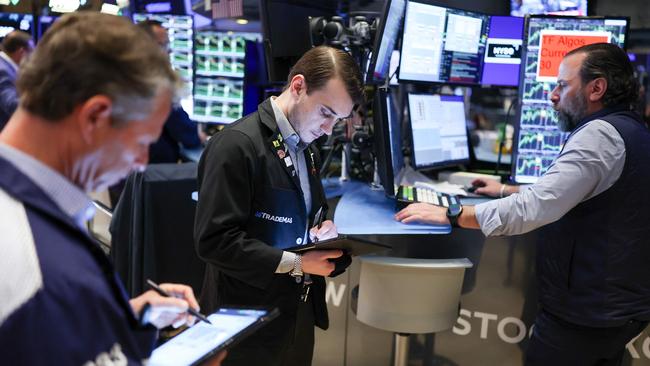Trump tariffs: Wall Street stocks, US dollar plunge amid global rout
Wall Street has lost $US3 trillion as investors grapple with Donald Trump’s sweeping new tariff plan.

US markets marked their steepest decline since 2020, as investors grapple with the threat that President Donald Trump’s sweeping new tariff plan will hurt economic growth and corporate profit and trigger global retaliation.
Major stock indexes dropped as much as 6 per cent - their largest decline since March 2020 - since the early days of the Covid-19 pandemic.
The Dow industrials dropped 1679 points, or 4 per cent. The tech-heavy Nasdaq, which powered the market higher for years, was down 6 per cent or more than 1000 points, pulled lower by big declines in Nvidia, Apple and Amazon.com. Apple and Nvidia lost a combined $470bn.
The S&P 500 fell 4.8 per cent.
LIVE: Follow the latest ASX market news in our TradingDay blog.
The US dollar slipped to its lowest level of the year - more than 1 per cent against the euro, Japanese yen and Swiss franc - a sign of unease over the growth outlook and fears that the flow of international funds into the country will be sharply curtailed.
Some of America’s allies came out swinging. French President Emmanuel Macron said Europe is weighing retaliation against US tech firms, while Canadian Prime Minister Mark Carney said his country will match the auto tariffs with 25 per cent tariffs of its own.
President Trump took the selloff in his stride. “I think it’s going very well,” Trump said in response to a question about his tariffs on Thursday afternoon.
“The markets are going to boom.”
Still, the decline sets up financial markets for one of their most precarious periods in recent years. The tariffs and the international reaction will test that faith.

Dozens of household-name stocks posted double-digit declines, including HP, Nike, Williams Sonoma and Ralph Lauren. Jeep maker, Stellantis, fell sharply and said it is temporarily halting production at its auto assembly factories in Mexico and Canada.
The turmoil has spread broadly, with oil prices dropping more than 6 per cent and investors selling gold after its sharp run over the past year to fresh records.
But so far, traders said, selling has been orderly and though the scale of US tariffs came as a shock, few investors are surprised to see stocks pull back following their gains over the past two years.
Despite the 2025 retreat in major indexes, investors have remained generally sanguine this year about the prospects for global growth and the opportunities for US markets. But the tariffs and the international reaction will test that faith.
“I’m bewildered,” said Sarah Ketterer, chief executive and portfolio manager at Causeway Capital Management. “We’re sailing into some seriously uncharted waters.”

Major stock indexes in Japan, Hong Kong and Europe also traded lower. Oil prices crashed and were on track for their worst day since 2022, when a spike after Russia’s invasion of Ukraine was unwinding.
It came after President Trump announced across-the-board tariffs against the rest of the world. The levies, he said, were pegged to the amounts that those countries imposed on the US. China, for one, would be hit by a new 34 per cent tariff. Japan will be taxed 24 per cent starting later this month, with the European Union facing a 20 per cent tariff.
President Trump’s trade war might pose the stiffest test to the stock market’s resilience since the financial crisis of 2008-09.
Since then, stocks have largely gone in one direction — up — and many individual and institutional investors alike have steadily bought small dips in the market.
Markets quickly rebounded after the March 2020 Covid-19 crash, in part because the US government quickly stepped in to stimulate the economy, unclog the debt markets and slash interest rates.
This time, America’s leaders, and their tariff plans, are the root cause of the selloff.
“It was pretty shocking,” Danny Kirsch, head of options at Piper Sandler, said of the trade levies. “This is much higher than the market expected.”
Some investors are betting that the Federal Reserve will cut interest rates in response to a slowing economy this year. Still, high prices as a result of tariffs could put the central bank in a tricky spot.
Investors know how to navigate most market-moving events, such as a Federal Reserve meeting or a report on inflation. The tariffs have been different.
“Nobody has a playbook anymore to go by,” said Matthew Tym, head of equity derivatives at Cantor Fitzgerald.
Wall Street Journal





To join the conversation, please log in. Don't have an account? Register
Join the conversation, you are commenting as Logout